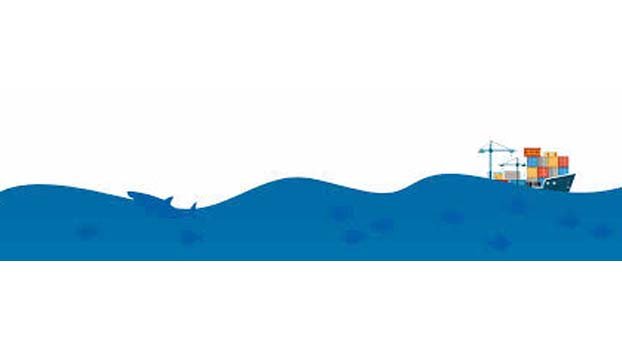Blue economy beckons big future

The government is taking more steps for proper management of fishery resources to exploit the potentiality of the Blue Economy in the Exclusive Economic Zone, the EEZ, in the Bay of Bengal.
Marine fishing is increasing in recent years, for the first time The Marine Fisheries Act has already been enacted and the capacity of relevant institutions is being enhanced.
After the settlement of maritime boundaries with neighboring countries India and Myanmar, for the first time a new comprehensive research vessel RV Meen Sandhani, a modern ship of the Fisheries Department started research on fisheries in the sea territory in the Bay of Bengal in December 2016. In September this year, the research report was submitted to the Department of Fisheries. A total of 456 species of fish biological data were entered.
The first research report of RV Meen Sandhani has revealed that some valuable fish species are declining, said Shariful Islam, Chief Scientific Officer of the Department of Marine Fisheries, proving that additional fishing is taking place in the Bay of Bengal which in fact needs a proper management.
“If the new law is fully implemented, it will ensure the management planned extraction and conservation of fishery resources at sea, and the steps taken by the government, including stopping fishing at certain times of the year, are yielding benefits, he added.
The first report of RV Meen Sandhani said, “It is clear that the present management regime is permitting an excessive and increasing fishing effort in the marine fisheries. Efforts to stop fleet growth and to responsibly begin reducing total fleet size are urgently required. The management intervention and the resulting benefits are both going to require some years of consistent and effective control.”
At present 250 modern trawlers and about 70,000 mechanical and non-mechanical vessels are fishing in the Bay of Bengal. In the last financial year, these vessels caught more than six and a half lakh tonnes of fish.
Although the amount of fishes caught is increasing every year, the Department of Fisheries thinks that there are some inconsistencies in it.
The Meen Sandhani report further mentioned, “More specific, targeted management measures will be required as well, but this first step is the most pressing and will have the greatest long-term impact. The exact scale of effort reduction is not known yet, but it is likely to be significant and can be refined in the medium term.”
So far there has been no complete law in the management of fishing in the Bay of Bengal. It was regulated by an ordinance of 1983. For the first time, the current law provides for a maximum of five years imprisonment and a fine of up to TK 25 lakh for various offenses.
Nurul Kaiyum Khan, President of Marine Fisheries Association, MFA said, this law has frightened the sailors and fishermen engaged in fishing. Referring to various sections of the law, he said, “We requested the government to amend it by December 31."
He said, there is no basic law to extract fishes in the sea for a long time. If suddenly a law is imposed without any consultation, it may create panic among the fishers and sailors engaged in fisheries.
The sea territory of the country is around 118 thousand square kilometres. But the fishermen and ships are fishing within 100 metres deep from the shore which is only one-third of the territory. The rest of the sea and adjoining international open areas remain unused.
Fisheries Department sources said, for years, unplanned overfishing decreased the fisheries stock near the coast. The new laws may help to maintain proper conservation of fisheries.
Kazi Shams Afroz, Director General of Fisheries Department said, before finalizing the Marine Friaries Law 2020, many consultation meetings were held with the stakeholders. For months the draft was displayed on the websites of the department. Till now we have not received any objections to the law, we have taken many initiatives including capacity building of the departments to regulate the marine fisheries in the interest of the country.
The DG said as it is not possible to assess the fisheries stock in the Bay of Bengal any short time research, multiple research is being conducted by RV Meen Sandhani.
6.5 lakh tonnes of fishes extracted from the sea is 15 percent of the total fish production of the country. If the potential of the blue economy can be used, 1.5 percent GDP growth may be added in the economy.



